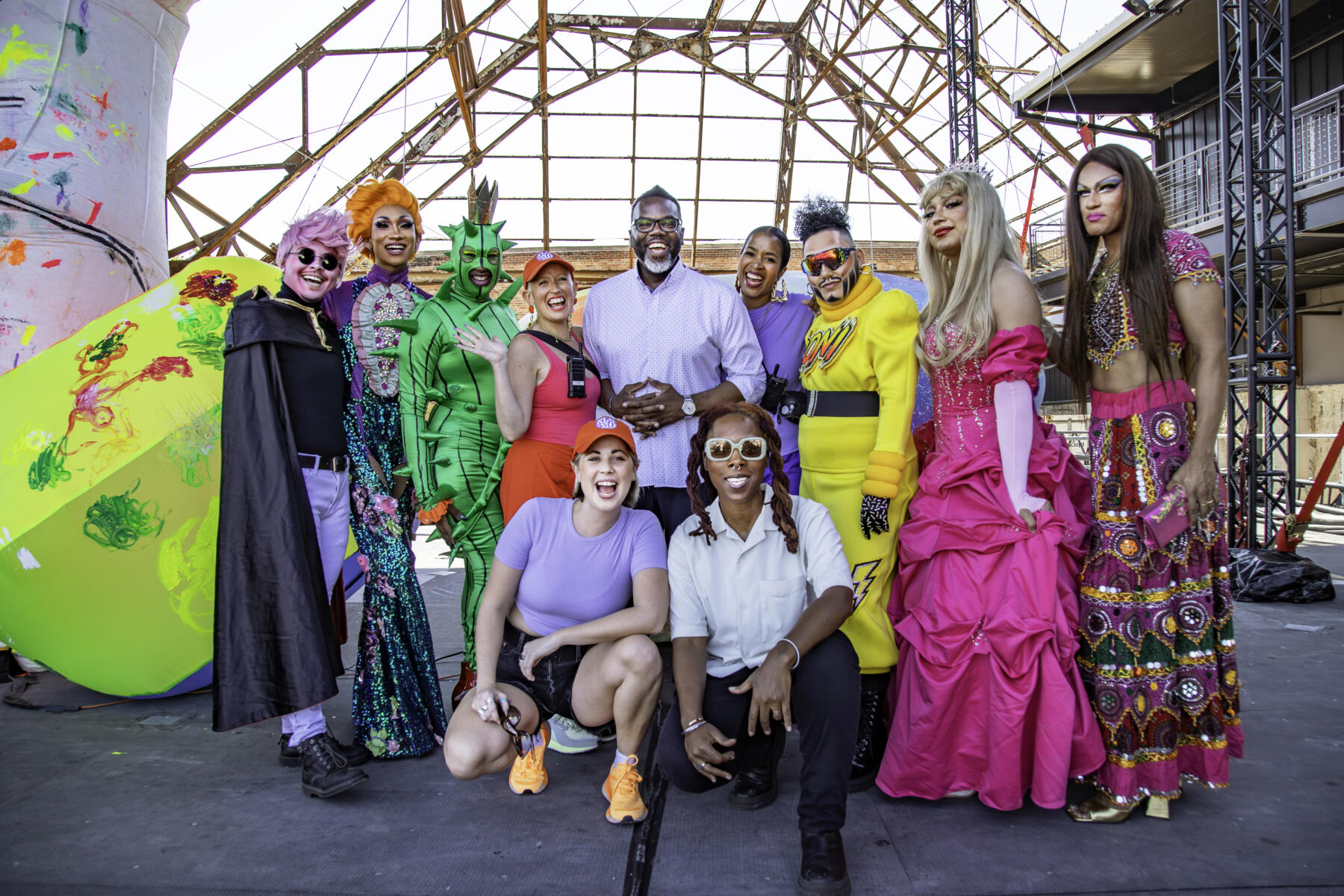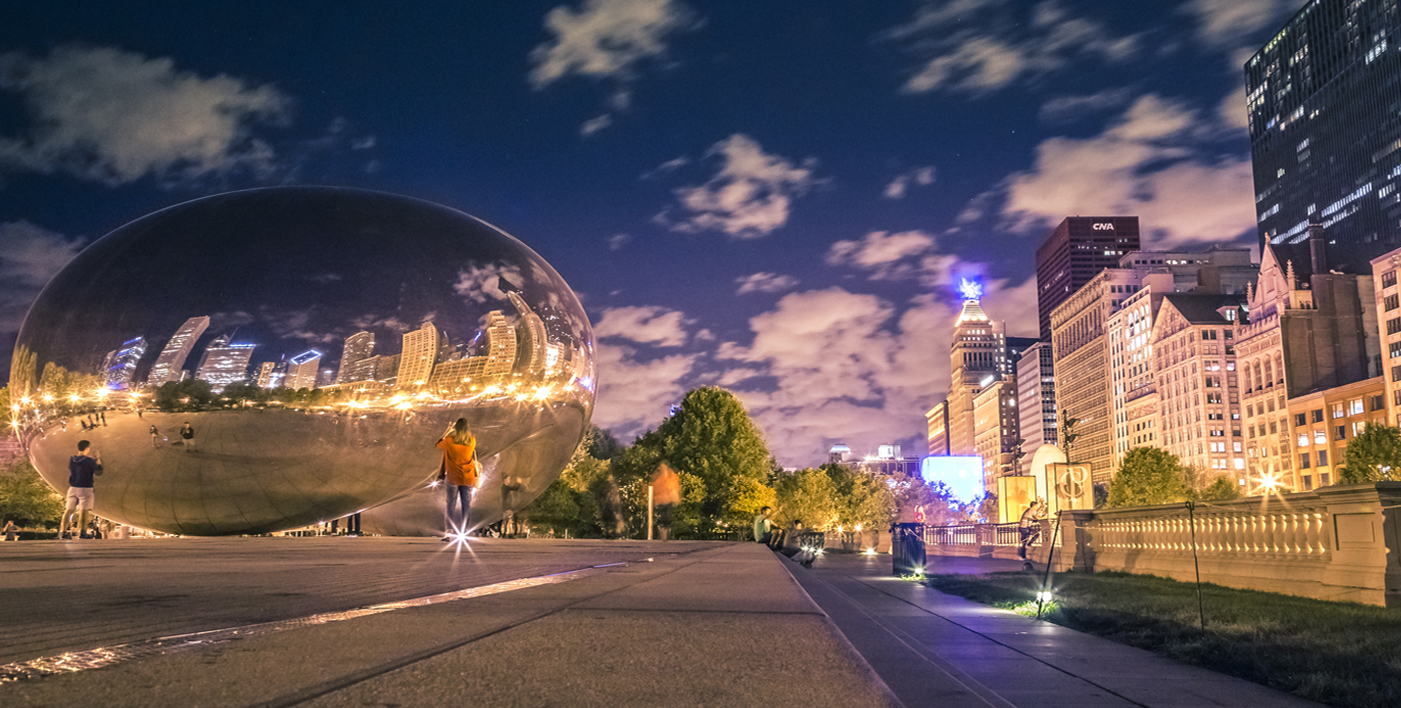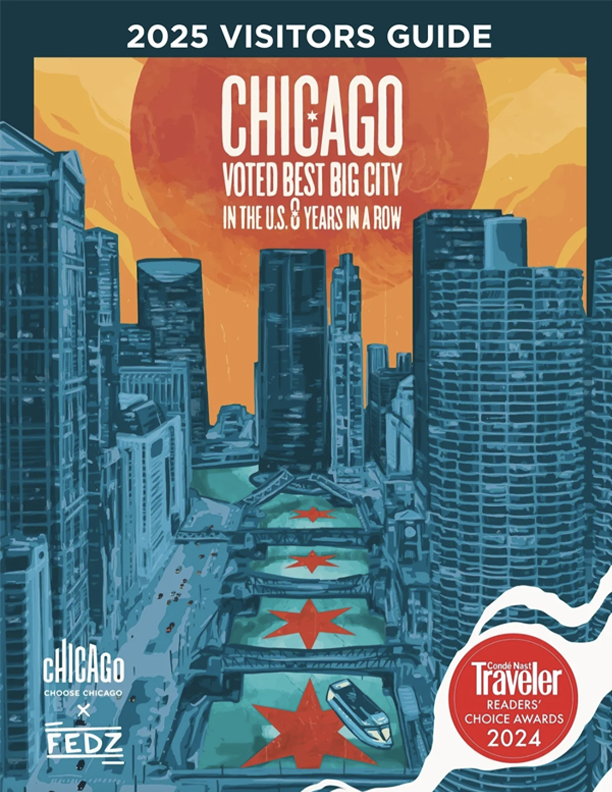House music was born in Chicago. It evolved from disco and emerged from the city’s underground club scene to become a worldwide phenomenon that still influences today’s most popular artists. But it started out as a safe space for Chicago’s Black and LGBTQ+ communities.
The genre and the queer community are still inextricably linked today, as evidenced by groups like Slo ‘Mo. This collective for queer and trans women, which has hosted more than 200 events over the past decade, is centered around creating connections through music — and often, that music is house.
“I like to say that house music is Chicago at its best,’” says Slo ‘Mo founder Kristen Kaza. “It exemplifies the city’s diversity.”
We chatted with Kristen about Slo ‘Mo’s recent Queer Fam Pride Jam event, house music’s queer roots, and cultivating inclusive spaces in Chicago’s nightlife scene.
How was Slo ‘Mo born?
I wanted to create a space for queer women and friends that felt a bit more intimate, with more mid-tempo music. It started there and grew to be events all over the city.
Our collective is a group of all queer and trans women and we have resident DJs, dancers, and hosts. We play and perform to a mix of R&B, house, and disco, predominantly from the ‘70s to today, with a special focus on women in music.
It’s about building queer community, connection, and activating joy through music and togetherness. As we’ve grown, we have been able to expand beyond club spaces and reach an incredibly diverse array of Chicagoans.
How does house music fit into Slo ‘Mo’s mission of facilitating connection?
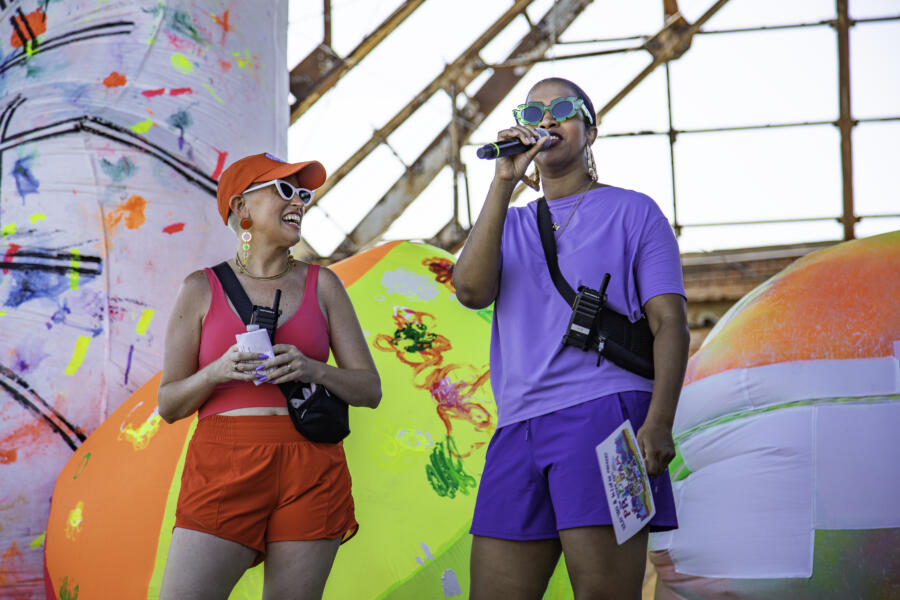
I think music is such a beautiful language and point of connection, particularly how it can tap into our humanity in ways that sometimes verbal language can’t. I think that’s what is so enduring about house music.
House has transcended time in a way that very few music forms have. You’re seeing a renaissance of house music right now that’s engaging every generation. The folks that founded it are Gen X and Boomers, but the people carrying on its legacy are millennials and even Gen Z.
House music activates unity and positivity in a way I’ve never seen anything else do. It connects people across communities and parts of the city.
Explore more: Celebrate the 40th anniversary of house music in Chicago with events and festivals across the city.
What is the Queer Fam Pride Jam?
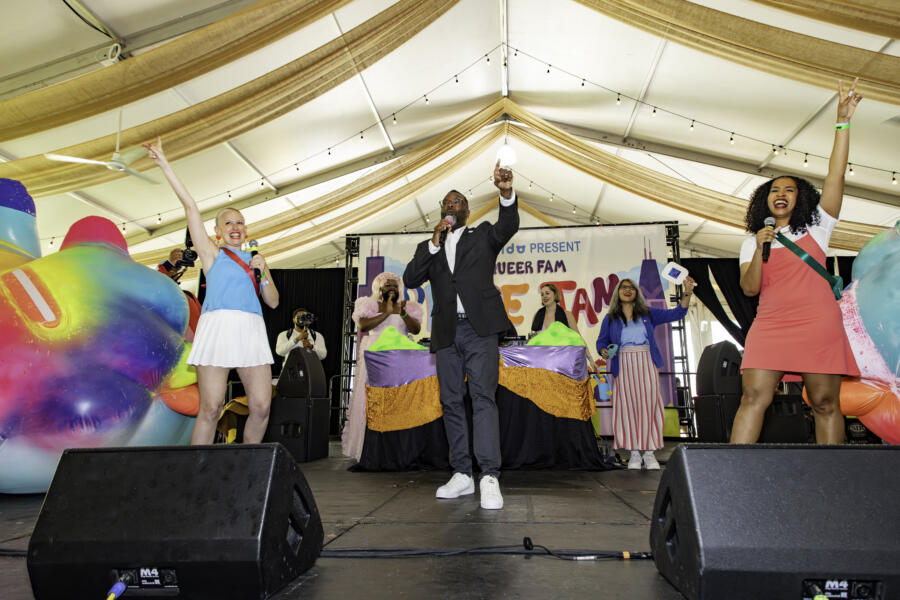
In 2021, I was in the process of making my family with my wife and I was becoming more focused on what it looks like to have spaces that consider the experiences of parents and children, knowing that was something I’d need and want in the future.
I connected with a woman named Keewa Nurullah, she owns Kido in the South Loop and produces family-centered events. And we had a real kinship over advocacy for diversity, LGBTQ communities, and Black communities of Chicago, and also for creating joy and fun in the city. And so we joined forces to create the Queer Fam Pride Jam.
This year, the city of Chicago invited us to join the Chicago House Music Fest as the opening activation of the festival. It was absolutely amazing. We felt very supported by the city and the community.
As a parent, to be in that environment and watch hundreds of families that look like my family who are so excited to be there, it is so incredibly affirming. You don’t know what that’s going to do for your confidence and sense of self, both for the parents and children, until you’re there. It’s very transformative.
What is the connection between house music and the LGBTQ+ community?
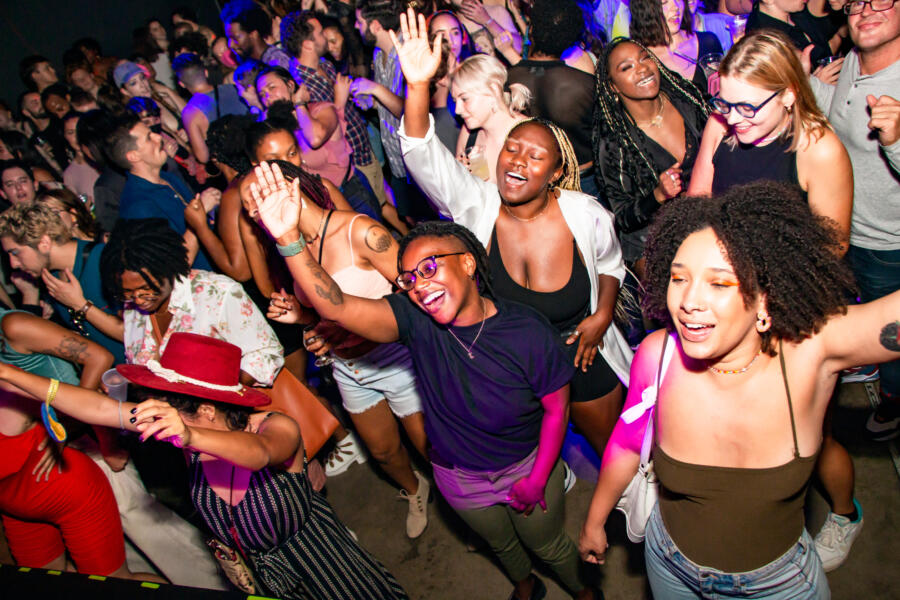
Chicago house music’s roots are queer, Black, and brown. Frankie Knuckles, a DJ at The Warehouse, is known as the godfather of house music and was an openly gay Black man.
What was so special about house music is that you had all kinds of people coming together, and there was this immense unity, because people loved the music and they loved to dance.
I think that now, 40 years later, we’re really seeing more of that historical context and honoring it. We’re seeing a lot more gender diversity thanks to the pioneering of Lori Branch and Lady D and some other incredible female house DJs from the ’80s and the ’90s.
Explore more: Hear from legendary DJ Chip E about the early days of house music in Chicago.
What house music artists are important to you?
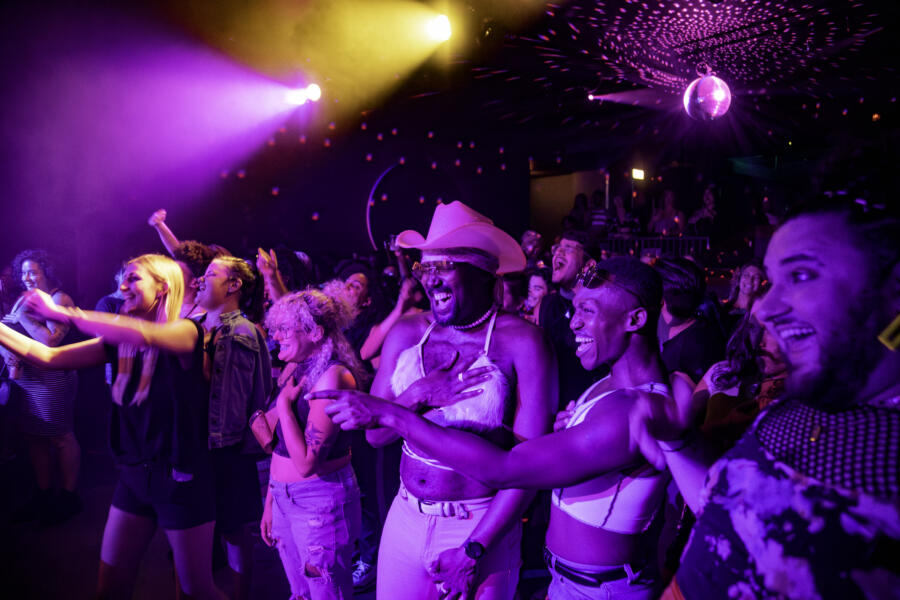
Lady D and Lori Branch are huge inspirations of mine. I’ve been really lucky to get to know them and work with them.
They are artists who have been so persistent over many decades and navigated those spaces sometimes being the only or one of the only women in the room — even in 2024 I find myself in that position as a producer and as a promoter in the music industry.
They are both artists who have persisted and grown in their art form and are having incredible moments in their careers as women over 50, it’s just massively inspiring to me.
Why is it important to cultivate queer spaces within the music scene?

We always need spaces to see ourselves reflected to activate our confidence. You can’t be what you can’t see. There’s a special kind of camaraderie that happens through movement, joy, and different emotional expressions that happen in dance and music environments.
And right now, we’re seeing that we still need these spaces more than ever.
We need that within our own communities and we also need it on the public and civic scale to say this community is important in the fabric of our city’s history and culture. We need these people to make our city beautiful and thriving.
How can people support the local house music scene?
Go see local music. Go to locally owned clubs, follow the artists and engage with them. Pay the cover, tip, buy merch. That is really what helps keep that economic engine sustainable. Chicago is the greatest city for music in the world and we can show the world that by investing in our music scene, talking about it, and supporting women, people of color, and LGBTQ people in music.

